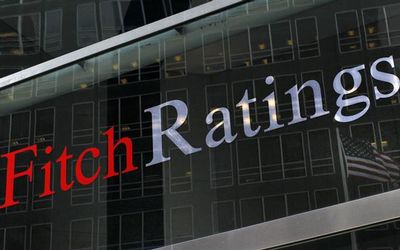WITH South Africa’s sovereign rating in the spotlight, there was a little-noticed cautionary tale earlier this week involving one of our neighbours.
Fitch Ratings downgraded Zambia’s foreign and local currency ratings by one notch, from a single B plus to just B. The downgrade was driven mainly by what Fitch called a sharp deterioration in government finances, with the fiscal deficit now expected to come in at 8.5% of gross domestic product this year, up from earlier estimates of 4.5%. Zambia is overspending on subsidies, says the rating agency. And public sector wages have jumped 38%. So government debt is heading upwards, to 40% or so.
Adding to Fitch’s concerns is Zambia’s current account deficit. At 2% it is modest by South Africa’s more elevated standards, but large outflows have made Zambia vulnerable.
It all sounds rather familiar, even if our fiscal figures are not as bad — and our sovereign rating is in the triple-B range, so a lot more respectable and investment grade than B. Sadly, our economic growth rate is much less respectable than Zambia’s forecast 7%. And this is one of the reasons we need to take notice of our neighbour’s fate.
South Africa’s economy is much larger than Zambia’s and its financial markets much more sophisticated and open — so much so that we have one among the world’s most liquid financial markets, and that means we are highly exposed to global shifts in sentiment and to global capital flows. Add our fiscal and current account deficits, which put us on the list of "fragile five" emerging markets, and our need for sizeable inflows of foreign capital, and it becomes clear that we should be taking the international credit rating agencies’ views very seriously.
Their ratings of our debt have a big influence on the pricing of our debt — so our cost of capital depends in part on them. But so does the total pool of capital we can access. Many institutional investors such as pension and provident funds have mandates which limit them to investing in, say, only investment grade debt, of, say, BBB or better.
We have already had one downgrade in the past year. A further downgrade would mean not only that the interest rates South Africa would have to pay on its debt could go up, but also that it might find it a lot more difficult to raise that debt.
No wonder then that the Reserve Bank is concerned, and that it has again made warning noises about the prospect of a further downgrade of South Africa’s credit rating. In its latest Financial Stability Review it cautions that the weak economic performance and recurring labour market tensions in South Africa continue to threaten our ratings outlook. What will be crucial over the next year is South Africa’s economic performance and whether we manage to rein in the fiscal deficit — and the strikes. Particularly dangerous, notes the Bank, is the prospect that South Africa’s rating could fall to the level at which we would be ejected from the key global bond index, Citibank’s world government bond index. This would trigger a flight of the foreign investors who piled into South Africa’s government bonds (to the tune of about R60bn) after Citi included us last year. In essence, South Africa cannot afford to fall below a BBB minus rating (or Baa3, depending whose scale it is).
Last week’s medium-term budget showed South Africa is still borrowing to fund social grants and salaries, and more than a third of that debt is held by foreign investors. International rating agencies may not command the kind of respect they used to before the financial crisis. But their views still matter a great deal, and have a material effect on our ability as a country to raise the funding we need to support social spending and investment in infrastructure and all the things we need to do to improve people’s lives and raise the economic growth rate.
Unless we take ratings seriously, and take action to address the risks the agencies have flagged, a ratings-driven crisis is possible.




















Change: -0.47%
Change: -0.57%
Change: -1.76%
Change: -0.34%
Change: 0.02%
Data supplied by Profile Data
Change: -1.49%
Change: 0.00%
Change: -0.47%
Change: 0.00%
Change: -0.08%
Data supplied by Profile Data
Change: 0.61%
Change: 0.85%
Change: 0.20%
Change: -0.22%
Change: 1.05%
Data supplied by Profile Data
Change: 0.28%
Change: -0.32%
Change: 0.13%
Change: -1.57%
Change: -1.88%
Data supplied by Profile Data